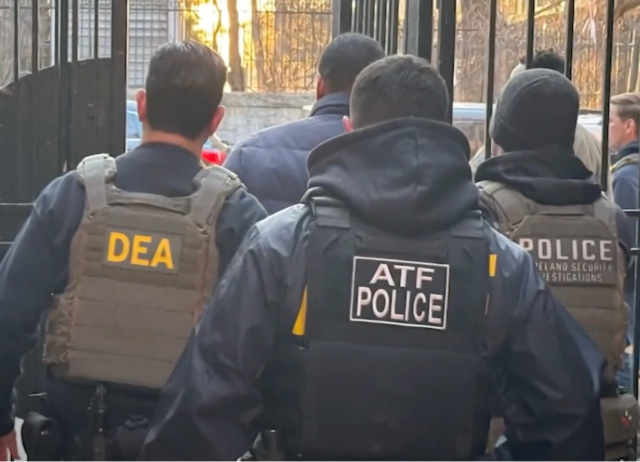Breaking News
White House Sues Illinois and Chicago Over Sanctuary Cities Policies

Source: YouTube
The Trump administration has launched a major legal battle against Illinois, Chicago, and Cook County, filing a lawsuit on Thursday over their sanctuary cities policies. The lawsuit accuses these jurisdictions of obstructing federal immigration enforcement and violating the U.S. Constitution’s Supremacy Clause, which establishes that federal laws take precedence over state and local laws.
Sanctuary Cities in the DOJ’s Crosshairs
This marks the administration's first significant legal action against Democratic-led cities and states resisting federal immigration crackdowns. The Justice Department claims Illinois’ TRUST Act and Chicago’s Welcoming City Ordinance prevent even basic cooperation with Immigration and Customs Enforcement (ICE), making it harder for federal officers to carry out immigration laws.
The lawsuit alleges that these policies interfere with federal efforts to detain and deport undocumented immigrants, particularly by limiting local law enforcement’s ability to assist ICE with civil immigration enforcement. While Illinois law enforcement still cooperates on criminal matters, the state bars officers from engaging in civil immigration actions. As a result, the DOJ insists that this decision undermines federal authority.
Supremacy Clause at the Center of the Fight
The DOJ argues that policies covering sanctuary cities violate the Supremacy Clause, which holds that federal law overrides conflicting state or local laws. The lawsuit seeks to have the Illinois and Chicago policies declared unconstitutional and temporarily blocked while the legal battle unfolds.
Trump officials have ramped up immigration enforcement since his return to office, declaring a national emergency on illegal immigration. The lawsuit reflects the administration's aggressive stance on immigration, with promises to hold local officials accountable if they obstruct federal efforts.
Local Leaders Push Back
Illinois Governor JB Pritzker defended the state’s policies, stating that the bipartisan Illinois TRUST Act, signed into law by a Republican governor, complies with federal law. “Illinois will defend our laws that prioritize police resources for fighting crime while enabling state law enforcement to assist with arresting violent criminals,” Pritzker said.
Cook County Board President Toni Preckwinkle echoed this sentiment, emphasizing that the county remains committed to being a fair and welcoming community. “Our policies reflect our longstanding values and ensure that local resources are used to promote public safety and community trust,” Preckwinkle said.
Meanwhile, Chicago Mayor Brandon Johnson, who has been asked to testify before a House committee on sanctuary cities, has yet to comment. The city’s police department and sheriff’s office declined to speak on pending litigation but reaffirmed their compliance with federal law concerning criminal matters.
The Legal Battle for Sanctuary Cities
The lawsuit could have far-reaching implications for sanctuary cities across the U.S. If the courts side with the Trump administration, it may embolden further legal actions against other jurisdictions with similar policies. The outcome could shape the future of local-federal cooperation on immigration enforcement and redefine the boundaries of state and federal authority.
As the legal battle heats up, the question remains: Will sanctuary cities like Chicago be forced to change their policies, or will they successfully defend their right to limit federal involvement in local law enforcement?
Which side do you support in the battle over sanctuary cities? Tell us what you think!
